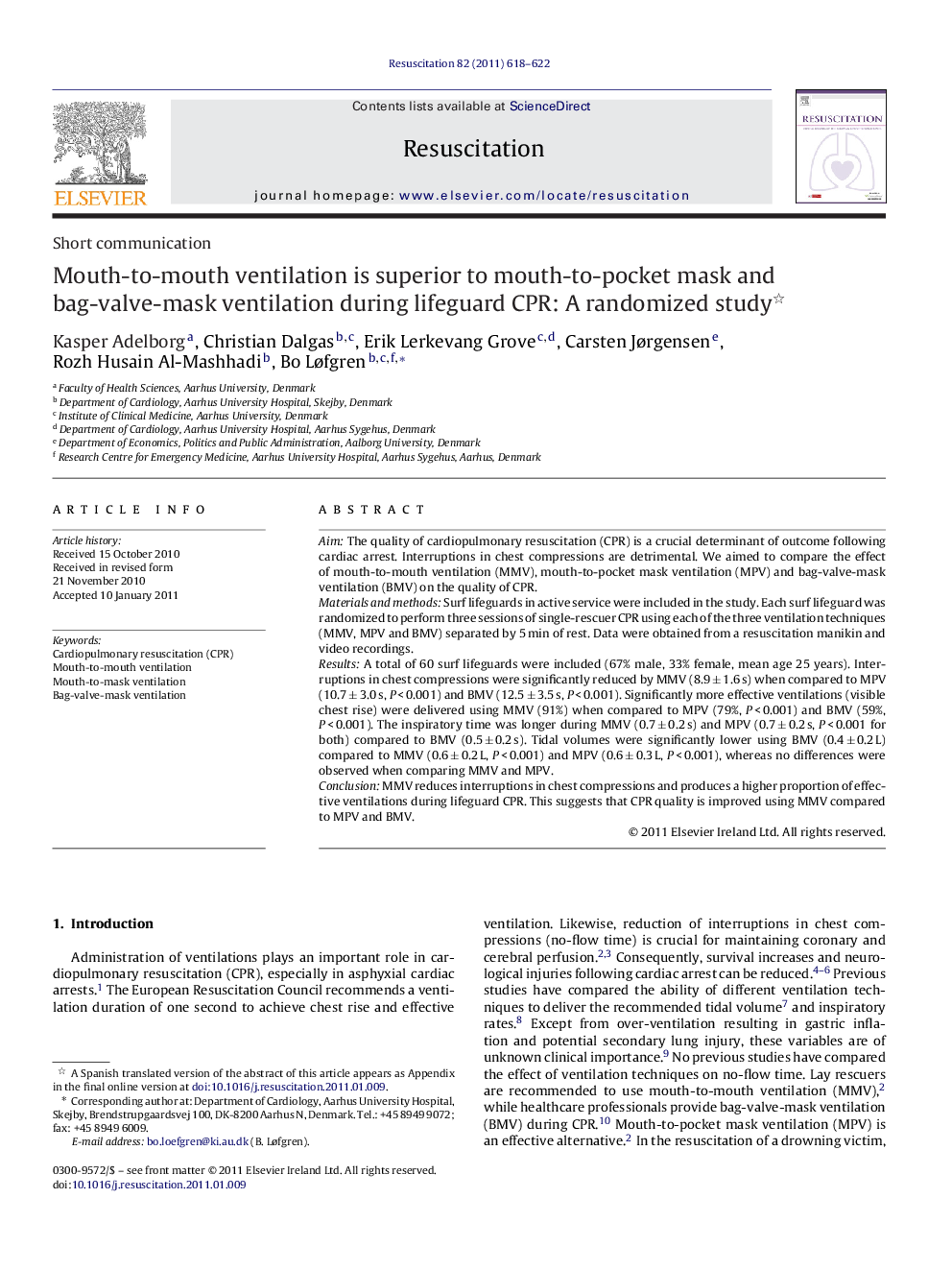| Article ID | Journal | Published Year | Pages | File Type |
|---|---|---|---|---|
| 3009686 | Resuscitation | 2011 | 5 Pages |
AimThe quality of cardiopulmonary resuscitation (CPR) is a crucial determinant of outcome following cardiac arrest. Interruptions in chest compressions are detrimental. We aimed to compare the effect of mouth-to-mouth ventilation (MMV), mouth-to-pocket mask ventilation (MPV) and bag-valve-mask ventilation (BMV) on the quality of CPR.Materials and methodsSurf lifeguards in active service were included in the study. Each surf lifeguard was randomized to perform three sessions of single-rescuer CPR using each of the three ventilation techniques (MMV, MPV and BMV) separated by 5 min of rest. Data were obtained from a resuscitation manikin and video recordings.ResultsA total of 60 surf lifeguards were included (67% male, 33% female, mean age 25 years). Interruptions in chest compressions were significantly reduced by MMV (8.9 ± 1.6 s) when compared to MPV (10.7 ± 3.0 s, P < 0.001) and BMV (12.5 ± 3.5 s, P < 0.001). Significantly more effective ventilations (visible chest rise) were delivered using MMV (91%) when compared to MPV (79%, P < 0.001) and BMV (59%, P < 0.001). The inspiratory time was longer during MMV (0.7 ± 0.2 s) and MPV (0.7 ± 0.2 s, P < 0.001 for both) compared to BMV (0.5 ± 0.2 s). Tidal volumes were significantly lower using BMV (0.4 ± 0.2 L) compared to MMV (0.6 ± 0.2 L, P < 0.001) and MPV (0.6 ± 0.3 L, P < 0.001), whereas no differences were observed when comparing MMV and MPV.ConclusionMMV reduces interruptions in chest compressions and produces a higher proportion of effective ventilations during lifeguard CPR. This suggests that CPR quality is improved using MMV compared to MPV and BMV.
